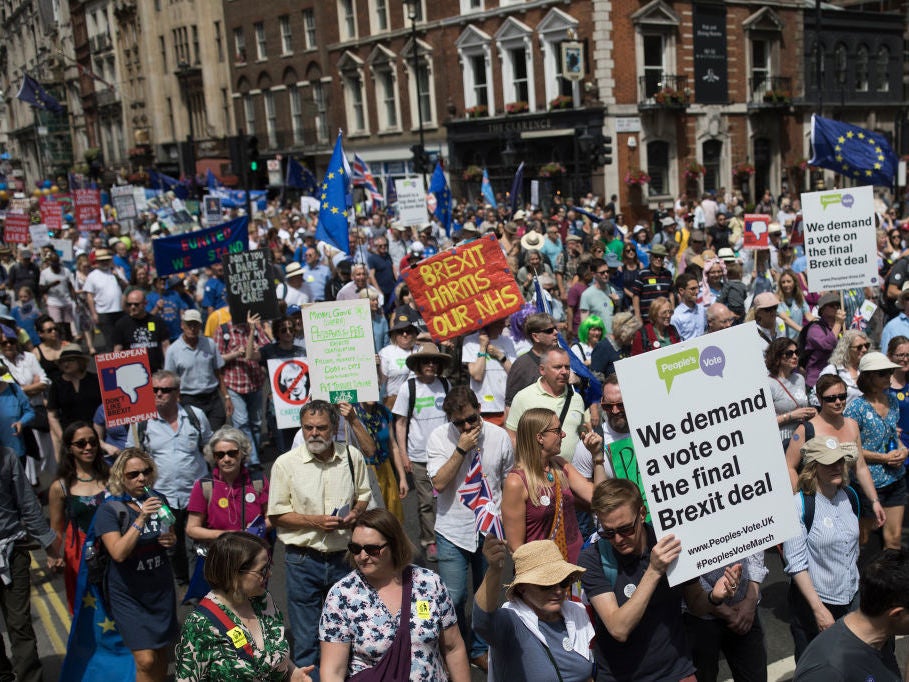The youth wave: Can outrage at the climate crisis be channelled into the general election?
Campaigners believe ‘Greta Thunberg effect’ could be beginning of significant political awakening

On a Tuesday night in a coffee shop on Edgware Road, a handful of campaigners are positively vibrating with energy and are determined to use the final hours available to help more people sign up to register to vote in the general election.
The plan is simple: lure people into Starbucks with the promise of a free coffee, then sign them up to the electoral register.
It’s been a good day. Even before the deadline, it appears the 2017 record for registrations had been topped, and with the majority of sign-ups coming from younger voters.
But beyond the immediate fizz of normal election fervour, there are glimpses of something else: collective frustration, collaborative action, a kind of ringing intensity or euphoria at the dim prospect of change.
It could just be the caffeine, but this is also the view of this “Democracy Cafe” event’s organisers, who believe they are successfully tapping a reservoir of political potential among disenfranchised, disenchanted and distrustful young people who are now clamouring to be heard.
Interminable bickering around Brexit, the mass climate strikes inspired by Greta Thunberg, and the Extinction Rebellion protests appear to have all combined to produce a particularly galvanising effect among a younger generation and demographic who have, until recently, largely lain outside the reach of traditional politics.
“Since the Brexit referendum young people are more politicised. You definitely see that with the youth climate strikes, and even with the turnout at the last election. We’re seeing that today with the higher registration numbers,” says Mete Coban, the youngest elected councillor in Hackney and chief executive of My Life My Say – a youth-led charity working to get young people involved in national politics.
“They feel let down, like no one represents them,” he says.
“And there is still a problem with whether they have faith in politicians and political institutions.
“They’re passionate about issues, but the problem is whether they see traditional politics as a means for addressing issues they care about.”
The challenge for the organisation is how to take this energy and channel it into mainstream politics ahead of an election. Can it be converted into a higher turnout among younger voters?
Dr Martin Edobor, a GP who is standing for Labour against Priti Patel in Witham, Essex, and is also working with My Life My Say, at the Democracy Cafe says the politicians we currently have are part of the problem.
“Young people are hugely, hugely frustrated for a number of reasons, including the climate crisis, and they feel that they need more leadership. Politicians aren’t listening, and as a result they [the young people] feel they have to use different methods, for example with Extinction Rebellion, because the mainstream approach isn’t working. And on Brexit, they just feel ignored.”
Coban adds: “They feel cheated in comparison to previous generations where you’ve been able to buy a property, for example, or on Brexit and their voices not being listened to. There is generally a sense of resentment against older generations.
“In the western world there’s a growing intergenerational divide, with this huge gap between what young people want and what the reality is.
“People feel cheated if they’re going to university and coming out with huge debt, whereas their parents had it for free.
“They’ve got this frustration, and a lot of people feel politically helpless.”
But it’s because of this analysis, not in spite of it, that they are upbeat about the direction this is pushing people ahead of the election.
“It’s been a hugely successful week for us. We’re having so much interaction and feedback, not just on social media. We have people telling their friends, using their family WhatsApp group to get them to register. There’s something different that’s happening now, that’s organically occurring,” Edobor says.
Coban agrees. “We’re trying to equip them with the skills to have those conversations, and giving them the resources to go out into their communities and do it.
“A lot of the messaging we’ve been pushing out is pointing out numbers of people who didn’t vote [at the last election] and how that eclipses the number of people voting for the larger parties.”
The organisation has also been pointing out the impact voting can have in marginal constituencies.
“We didn’t foresee this level of engagement with more than double the number of people registering to vote. The conversations we have at our Democracy Cafes tell us that people are actually looking forward to getting out there to vote, and that’s a big change in attitude,” Coban says.
In the cafe, people who have registered to vote are talking to the campaign team, posing for photographs and being urged to encourage others to sign up. There are just a few hours to go.
On Wednesday it was revealed that before the final deadline at midnight on 26 November, there had been a total of 3.85 million applications to vote in the period from the day the election was called on 29 October.
The figure is around 67 per cent higher than the 2.3 million applications to register in a similar period in the 2017 election, and the Electoral Reform Society said on Tuesday that of the applications made since October, 67 per cent were made by people aged 34 or under – a figure which is generally seen to be beneficial to Labour.
Of those who applied yesterday, 459,000 (70 per cent) were under 34 years old.
The plan now is to harness that energy and maintain it through social media, through popular “influencers”, and make sure young people are as informed as possible, Coban says.
“This is the start of the conversation, but we’re carrying on right until polling day.”
Join our commenting forum
Join thought-provoking conversations, follow other Independent readers and see their replies
Comments
Bookmark popover
Removed from bookmarks